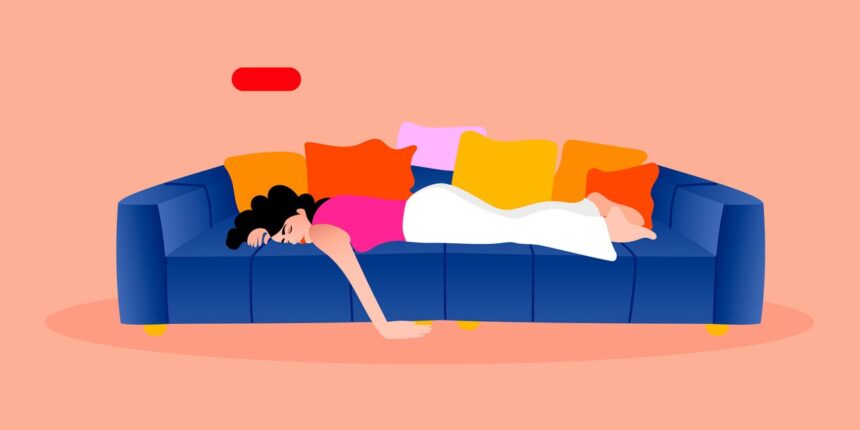If you’ve ever struggled with sleep (read: if you’re a human), you can probably rattle off at least a few pieces of sage sleep advice: Quit the caffeine in the evening. Turn your bedroom into a snooze-inducing sanctuary. Perfect a nighttime routine that quiets your mind. And for the love of melatonin, keep your eyes away from your blue-light-emitting devices before bed. These tips are popular because they work—but they can also feel like a laundry list. And according to sleep doctors, it might not actually be necessary for you to do all of these things, all of the time to secure the restful shuteye you so desperately want and need.
In reality, sleep is an individual and variable thing. Everything from your health to your work schedule to your family life and stress levels can factor into how well you are (or aren’t) snoozing. In turn, the habits that let you get the best possible sleep can change considerably over time, Jennifer Martin, PhD, spokesperson for the American Academy of Sleep Medicine and professor of medicine at the David Geffen School of Medicine at University of California Los Angeles, tells SELF. For example, Dr. Martin says she’s always preferred a morning workout to kick off her day and help her rest easier in the evening, but when her kids were teenagers coming home at 10 p.m. from sports practice, she often stayed up late to hang with them…and bypassed her early A.M. sweat to get enough sleep. “What works for you now might not be what worked for you in the past,” she says.
To get a sense of what a well-oiled sleep routine actually looks like, we asked five sleep doctors about the habits they prioritize (and what they let fall by the wayside). Read on for an inside look at how these experts fit good sleep advice into their current realities.
1. They honor their internal clocks.
Dr. Martin is a true-blue morning person—she generally wakes up around 6 a.m. and functions best when she frontloads her day. So she makes a point to avoid late-night activities whenever possible since otherwise, she’ll wind up shortchanging herself on sleep when she inevitably still wakes up at the crack of dawn. To align her schedule with her body clock and get a full night’s rest, she aims to get into bed by 10 p.m. every day. “The math in my head is that I really look forward to waking up feeling fully rested and so, in order for me to do that, I go to bed early,” she says.
Maybe your circadian rhythm is oriented differently, and you find evenings to be your most productive window—so instead, you push your wakeup time back, so you can stay up into the wee hours without sacrificing zzz’s. Whichever way you roll, listening to your body and scheduling your sleep accordingly (to the extent that you can, of course, with family and work obligations) can pay dividends. Not only does it help ensure that you regularly notch your optimal seven to nine hours of shuteye, but also, it keeps essential body functions like digestion and hormone regulation chugging along smoothly. As Jade Wu, PhD, a board-certified behavioral sleep medicine specialist and author of Hello Sleep, previously told SELF: “The body functions best when it runs consistently on a rhythm.” It’s the reason why Brandon Peters, MD, a board-certified neurologist, sleep-medicine specialist, and author of The Sleep Apnea Hypothesis, also tells SELF he especially prioritizes going to bed and getting up at the same time nearly every day.
2. They make it a habit to get some morning sunlight.
Practically every expert we spoke to noted their affinity for catching morning rays. And not just by gazing out a window: Dr. Peters says he walks to work multiple days a week. For Rebecca Robbins, PhD, a sleep scientist at Brigham and Women’s Hospital and sleep expert at Oura Ring, it’s a quick pop outside for a stroll around the block, and she usually takes her kids and dog along, too. And Shelby Harris, PsyD, a sleep psychologist and the author of The Women’s Guide to Overcoming Insomnia, says she positioned her desk directly in front of a window so she can get light first-thing (and throughout the day).
Read the full article here



